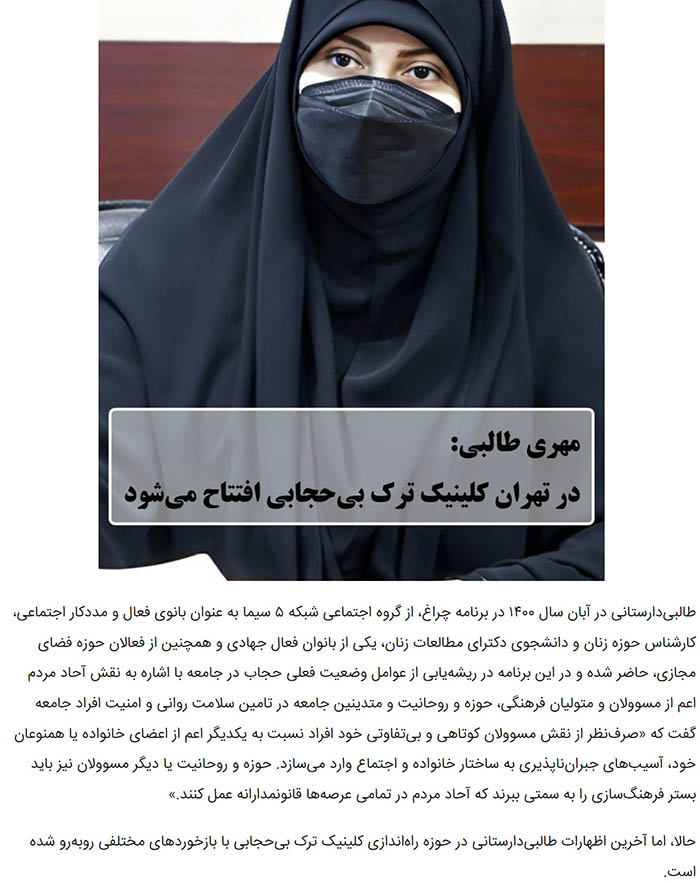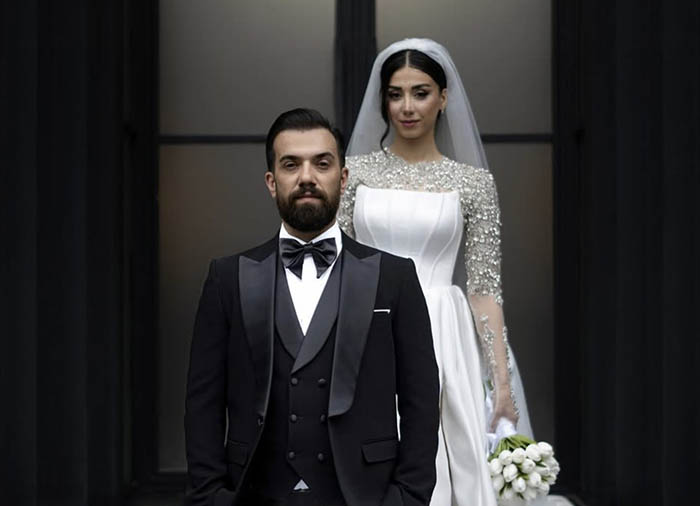9 Reasons Why Mehri Talebi Darestani’s “Hijab Addiction Clinic” Idea is Controversial and Anti-Freedom

9. “Rehabilitation” as a Mechanism for State Control
The idea of a “rehabilitation clinic” implies that the state has the authority to decide what is acceptable behavior for its citizens, especially when it comes to personal lifestyle choices. By framing the lack of hijab as something to be “treated,” the clinic normalizes the idea that the state should be involved in the intimate, everyday decisions of its people. This could set a concerning precedent for other aspects of life, such as social behaviors, artistic expression, or even relationship choices.
If the state can determine which behaviors require “rehabilitation,” it opens the door to other forms of state-enforced “correction.” This approach goes beyond the hijab, representing a broader ideology that sees state intervention as a necessary component in shaping not just public behavior but personal identity. Such an outlook strips away the distinction between public and private life, creating a society where people must conform to narrowly defined standards, or else face “rehabilitation.” In an age where privacy and personal choice are increasingly valued, Darestani’s idea represents a concerning step backward.
Conclusion
Mehri Talebi Darestani’s “Hijab Addiction Clinic” proposal may be intended as a method for enforcing traditional values, but it has triggered a powerful public reaction that reflects broader desires for freedom and respect for individual choices. Her clinic proposal, rather than rehabilitating anyone, has spotlighted the resilience of personal freedom and the growing demands for respect and autonomy in modern society. For many, the right to wear—or not wear—the hijab is not a matter of state jurisdiction but a deeply personal decision.
This controversy serves as a reminder that, regardless of cultural or religious norms, the right to choose is at the heart of human dignity. Whether through social movements, digital activism, or everyday acts of self-expression, individuals are increasingly advocating for a world where they can live authentically without fear of forced “rehabilitation.” In this sense, the “Hijab Addiction Clinic” proposal underscores not just the debate around hijab but the universal struggle for personal freedom in the face of authoritarianism. As long as there are voices willing to speak out against such restrictive policies, there will always be hope for a society that values and protects the individual right to choose.




